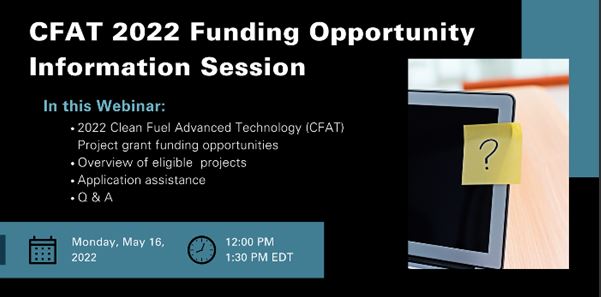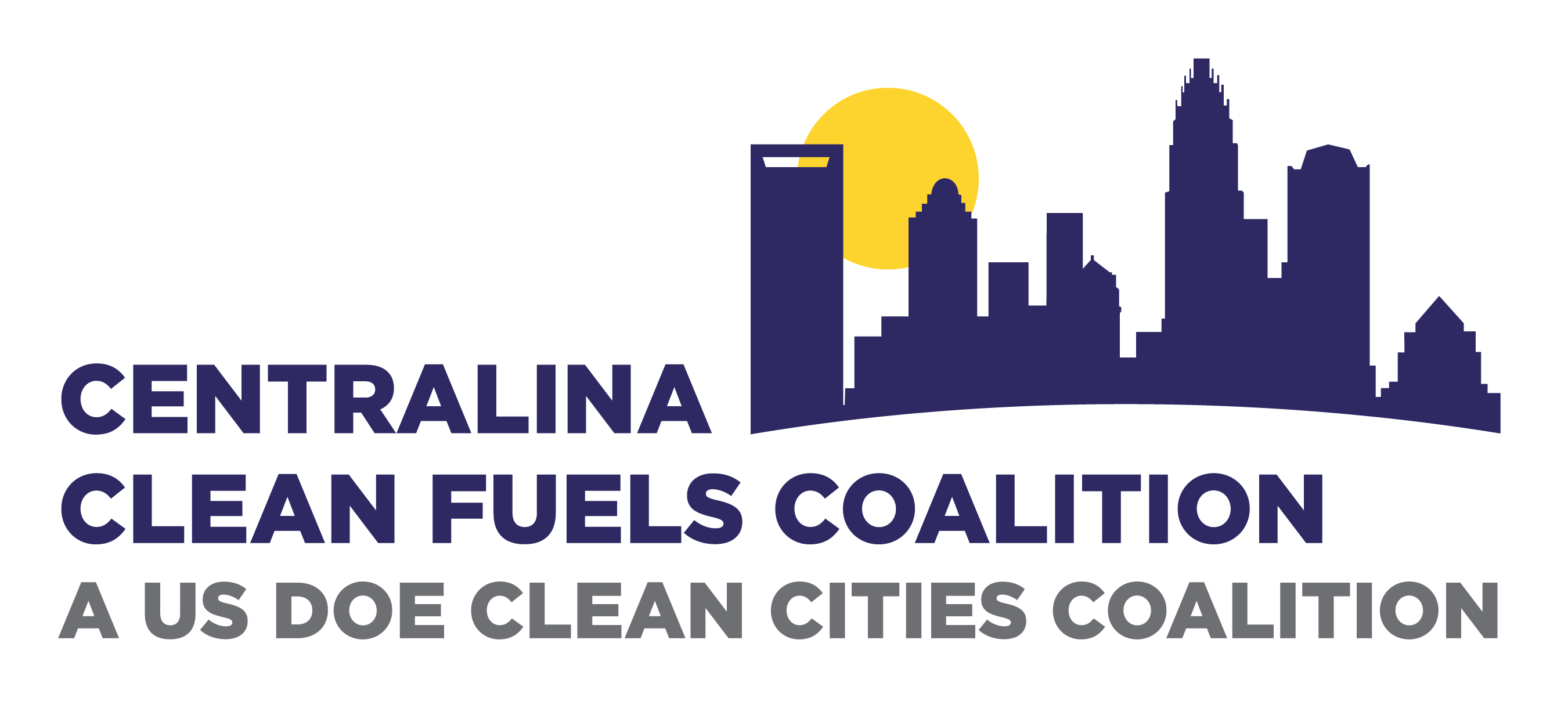Category: Grants
- 1
- 2
The Mecklenburg County Air Quality improvement program called Grants to Replace Aging Diesel Engines or GRADE is now accepting applications for funding. Over $300,000 is available in the form of rebates to cover 25%-60% of the cost to replace or repower heavy-duty vehicles and equipment operating in the Charlotte region. Applicants can request funding to purchase new, less polluting fuel technology such as electric, diesel, alternative fuel and hybrid electric.
Examples of eligible projects include:
For more information and to access the one-page application visit the GRADE homepage HERE.
Read about current and past project successes here to get ideas for your fleet replacements.
Join the distribution list by clicking here to ensure you don’t miss funding announcements!
The NC Department of Environmental Quality’s Division of Air Quality (DAQ) has released the Request for Proposals (RFP) for Level 2 Workplace Program rebates under Phase 2 of the VW Settlement. The RFP details how employers can apply for the $489,544 available to fund the installation of light-duty zero-emission (ZEV) Level 2 charging stations for their employee or fleet vehicles.
The application will open in the DAQ Grants Management System on July 25, 2022, while a PDF version of the application is now available on the program webpage for applicants to prepare all required materials in preparation for the online application. Applicants are encouraged to register for access to the Grants Management System prior to July 25.
Eligible applicants include local and federal government agencies and nonprofits or private employers with at least 5 or more year-round and full-time employees or with at least one electric vehicle in their organization’s fleet. Rebates will reimburse workplaces up to 60% of the cost to install new Level 2 chargers for a maximum rebate of $25,000. Rebates will be awarded on a first-come first-serve basis to qualifying applicants until funds are exhausted.
A webinar will be held on June 20, 2022 to review the Grants Management System and an informational webinar will be held on June 27, 2022 to discuss the Level 2 Workplace Program RFP. Information regarding applications, eligibility and registration for webinars can be found here.
With additional questions please contact daq.NC_VWGrants@ncdenr.gov
The Level 2 Workplace Program is the final funding program of Phase 2 of the VW Settlement.
The North Carolina Clean Energy Technology Center (NCCETC) at North Carolina State University announces the following request for proposals (RFP) through the 2022 Clean Fuel Advanced Technology (CFAT) project. The 2020 initiative will offer $1.4 million, focused on reducing transportation-related emissions, and supported with federal Congestion Mitigation Air Quality funding from the N.C. Department of Transportation (DOT). The primary purpose of the CFAT project is to reduce transportation-related emissions in 24 eligible North Carolina counties.
Project proposals will be limited, none higher than $300,000 and none lower than $5,000. Applications will be due Monday, August 1, 2022. This will likely be the only solicitation for 2022.
Projects located in the following counties are eligible for CFAT funding: Cabarrus, Catawba, *Chatham, Davidson, Davie, Durham, Edgecombe, Forsyth, Franklin, Gaston, Granville, Guilford, *Haywood, *Iredell, Johnston, Lincoln, Mecklenburg, Nash, Orange, Person, Rowan, *Swain, Union, Wake, (*Represents partial counties).
Projects for electric vehicle charging stations (EVSE) will be accepted within all 100 counties.
NOTE: Applications should be emailed to CFAT_grants@ncsu.edu.
View examples of prior successful CFAT project proposals in 2018 and 2019

NC Clean Energy Technology Center hosted a CFAT 2022 Funding Opportunity Informational Webinar from 12-1:30pm Monday, May 16, 2022. The webinar featured an overview of eligible projects and had a Q&A session to assist with application submission. To view a recording of the webinar, click the button below.
Eligible applicants to be submitted to the Level 2 Multi-Unit Dwelling Program include property owners of multi-unit dwellings with 10 or more units in North Carolina, such as apartment complexes, condominiums, etc. This excludes individually-owned townhouses, row houses and mobile homes.
The program includes funds totaling $489,544 to be used in installing Level 2 electric vehicle charging infrastructure at eligible multi-unit family dwellings. The RFP was released May 2, 2022 and applications will be made available June 13, 2o22.
On May 9, 2022 the DAQ will host a webinar on how to request access to the DAQ Management System from 1:00pm- 2:00pm for applicants who do not have access to the system. The webinar will discuss what documents are required to request access to the system, how to use the built in tutorials once access is granted to the system and how to submit an application. Register here
A second webinar hosted by the DAQ will occur on May 16, 2022 from 1:00pm-3:00pm. The focus discussion for this webinar will be RFP and its requirements. Staff will answer questions regarding the Request for Proposals and the program application. Register here
A Clean School Bus, as defined by the BIL, is a bus that reduces emissions and is operated entirely or in part using an alternative fuel or is a zero-emission bus. The BIL provides $5 billion dollars over 5 years (FY22-26) for the replacement of existing school buses with low and zero-emission buses. State or local government entities, eligible contractors, nonprofit school transportation associations, and tribes, tribal organizations, tribally-controlled schools are all eligible for the program funding. A zero-emission bus is defined as a school bus that
produces zero exhaust emission of any air pollutant and any greenhouse gas.
Awards will be granted covering up to 100% of the cost of the replacement bus and charging or fueling infrastructure. Priority applications may be recognized to replace buses that serve; high-need local education agencies, tribal schools, rural schools, low-income area schools, or applications that provide cost share through public-private partnerships, grants from other entities, or school bonds.
Usage requirements (All replacement buses must):
Slides are now available from the EPA’s Clean School Bus program webinar here.
Sign up for Clean School Bus Program news here.
More information and updates available here: https://www.epa.gov/cleanschoolbus.
The NC VW School Bus Program, Duke Power Electric School Bus Pilot Project and Bipartisan Infastructure Funds will all provide funding for electric school buses. The North Carolina Department of Environmental Quality is seeking to increase interest and awareness of the availability of electric school bus replacement funding through the NC Volkswagen Settlement Program.
NC VW School Bus Program Information
–Historically Under-Resourced County Outreach Program
The Department of Environmental Quality’s Division of Air Quality (DAQ) has released the Request for Proposal (RFP) for State Agency Level 2 Charging Infastructure grants under Phase 2 of the Volkswagen Mitigation plan.
The RFP details how to apply for the $1,000,684 available for funding to install new light-duty zero emission vehicle (ZEV) Level 2 charging stations at state agencies and state-managed attractions.
Applications can be submitted by NC state agencies and state-managed attractions including; departments, institutions, public universities, community colleges, state parks, aquariums, and museums. Public-private partnerships where the lead applicant represents a state agency or state-maintained attraction may also apply. Projects within the 37 counties identified as Historically Under-Resourced are eligible for bonus project scoring points & other additional technical support.
The PDF version of the application is available on the program webpage for agency reference to prepare all required materials for the online application. The online application will be made available April 1, 2022 and must be submitted on May 31, 2022 via the Grant Management System.
The DAQ will hold an information session on this RFP for interested applicants on March 14.
The Department of Environmental Quality’s Division of Air Quality (DAQ) is now accepting applications for the Transit and Shuttle Bus Program grants under Phase 2 of the Volkswagen Mitigation plan. The Request for Proposal (RFP) released yesterday details how to apply for the $13.5 million available to replace older, diesel transit or shuttle buses with cleaner low emission vehicles to significantly reduce NOx emissions and improve air quality.
Projects can be submitted by local, state, and tribal government organizations, public or private nonprofit organizations, and public-private partnerships where the lead applicant is a public sector, public or private nonprofit organization. In Phase 2, DAQ will prioritize electric vehicle replacement projects to maximize emission reductions and public health benefits. Projects within the 37 counties identified as Historically Under-Resourced (Appendix D of the RFP) are eligible for bonus project scoring points as well as additional technical support during the application process.
DAQ will accept applications for the Transit and Shuttle Bus Program until May 2, 2022 via the Grant Management System. Specific instructions on how to register for the Grant Management System and submit an application are detailed in the RFP. The Division will also hold additional information workshops during the application period. Information regarding applications, eligibility, and the registration for DAQ’s online RFP information sessions will all be located on the division’s website, at https://deq.nc.gov/VW-Transit-Bus-RFP.
If you have any questions about the RFP or application process, please contact NCDEQ at daq.NC_VWGrants@ncdenr.gov with the subject title: “Transit and Shuttle Bus_Program RFP” prior to submitting your application and in advance of the submission deadline.
Phase 2 of the VW Mitigation Plan covers the remaining $68 million of the state’s share of a national settlement with the automaker and includes programs for school bus replacement and zero emission vehicle (ZEV) infrastructure. The schedule for future RFP releases is available online.
The North Carolina Division of Air Quality will be accepting proposals to fund clean diesel projects beginning at 9:00 am September 15, 2021 through the North Carolina Division of Air Quality’s Grant Management System. Approximately $861,000 is available for eligible projects through the Mobile Source Diesel Emission Reduction Grant program. The grants can be used to cover a wide range of projects including repowering non-road construction or agricultural equipment with cleaner burning engines, converting vehicles to run on alternative fuels and replacing older diesel vehicles or eligible equipment with new cleaner vehicles or equipment.
Businesses and organizations from the public and private sector are eligible to apply. The division will prioritize funding for non-road equipment projects, but proposals for on-road and other eligible projects will be considered if funding is available.
Applications must be submitted through the North Carolina Division of Air Quality’s Grant Management System no later than 11:59 pm Eastern Time on November 30, 2021 to be considered. More information on eligible projects and application instructions is available online at http://deq.nc.gov/about/divisions/air-quality/motor-vehicles-air-quality/mobile-source-emissions-reduction-grants.
The 2021 Diesel Emissions Reduction Grant program is funded by the U.S. Environmental Protection Agency’s Diesel Emissions Reduction Act (DERA) program. The purpose of DERA funding is to support projects designed to achieve significant diesel emissions reductions.
NC DAQ held a question and answer session on September 22, 2021 and October 27, 2021 to assist with the application process for this year’s grant. The question and answer session provided information on eligibility and how to request access, log into and use the Division of Air Quality’s Grant Management System. If you have any questions that you would specifically like to have addressed, please email them to daq.mscb.ncdaqgrants@ncdenr.gov.
For information on the WebEx webinar and a link to view a recording, visit:
https://ncdenrits.webex.com/ncdenrits/onstage/g.php?MTID=efa54a72ece3f7759f8d10aa31b9087dc
For more information about the Mobile Sources Diesel Emissions Reduction Grant program, please visit the state Division of Air Quality’s website at: http://deq.nc.gov/about/divisions/air-quality/motor-vehicles-air-quality/mobile-source-emissions-reduction-grants or via e-mail at daq.mscb.ncdaqgrants@ncdenr.gov.
In 2007, Mecklenburg County Air Quality launched an innovated air quality improvement program called Grants to Replace Aging Diesel Engines or GRADE. GRADE is designed to reduce oxides of nitrogen (NOx), an ozone forming air pollutant, by providing businesses and organizations funding incentives to replace or repower heavy-duty non-road equipment with newer, cleaner, less polluting engines.
